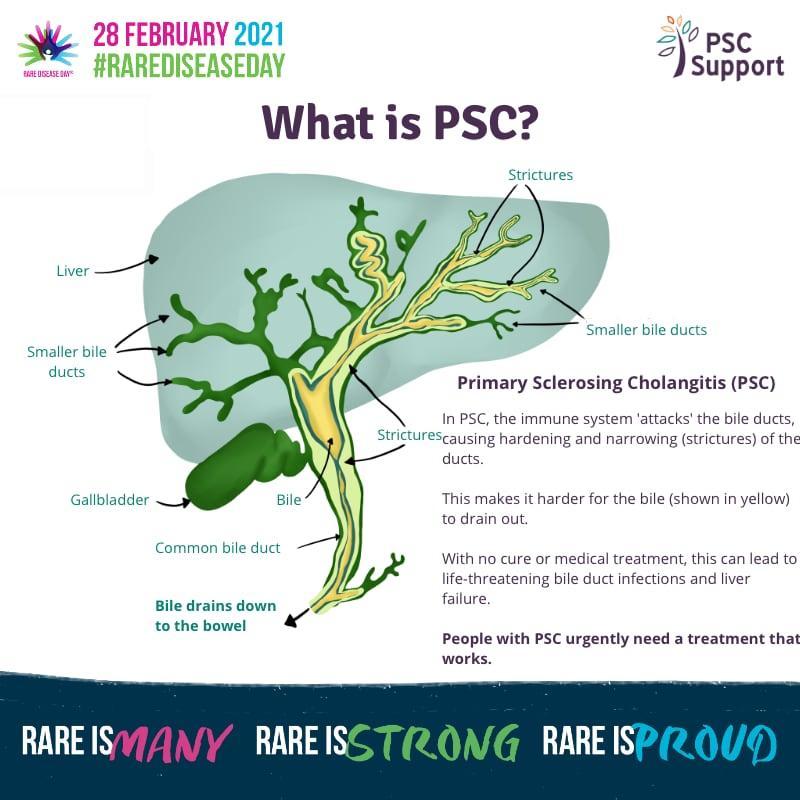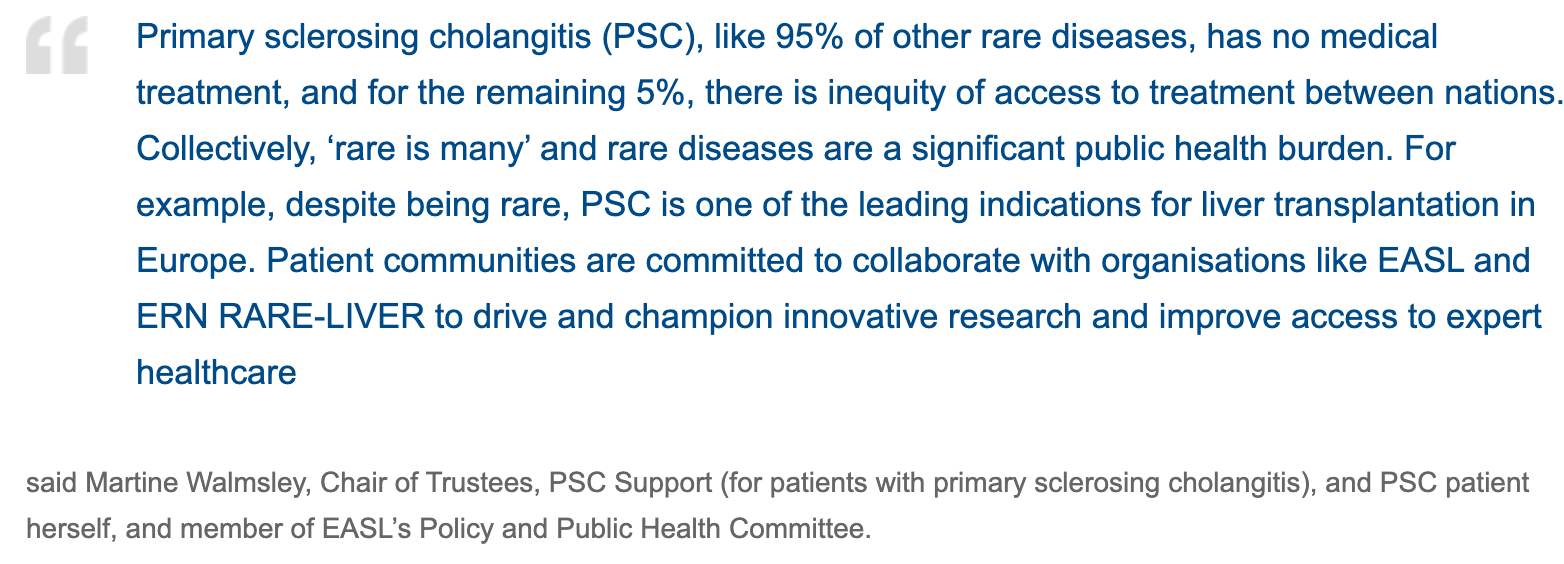Rare Disease Day 2021
Rare Disease Day 2021
PSC is a rare liver disease
Sunday 28th February
Why is Rare Disease Day important for people living with PSC?
Why not just focus on getting a cure for our own rare disease?
Well, rare diseases are under funded, rare (obviously!) and often complex with huge unmet medical and social needs (sounds just like PSC). Only by working together with other disease groups and nations, policy makers, researchers healthcare professionals and more can we make the changes needed to improve care and advance research. These amazing young people explain all this much better than us - but THIS is why PSC Support devotes time advocating for rare liver diseases across the whole of Europe.
If you have friends and family who would benefit from hearing this message, please share this video (either direct from YouTube or via our social media).
What about raising awareness of PSC?
We're ALWAYS keen to do that! If you'd like to use Rare Disease Day as an opportunity raise awareness of PSC and PSC Support, please share our graphic. Most people struggle to understand what on earth PSC is because it is so complex. This graphic is the best way to simply explain what PSC is. Go ahead and share this graphic or find our social media posts and share those. Thank you!
Our work within the European Association for the Study of the Liver's (EASL) has placed PSC as the standout quote in their Rare Disease Day news release. This helps get our message out to liver clinicians and researchers around the world.
Improving lives over the next decade
Our work is not just about raising awareness; it's about effecting real changes for the better.
We're fully supporting the recommendations made in the Rare 2030 Foresight Study, initiated by the European Parliament and co-funded by the European Commission Pilot Project and Preparatory Actions Programme.
This two year study with over 250 experts from across the rare disease community, has resulted in eight overarching recommendations to ensure that the future of 30 million people living with a rare disease is not left to luck or chance.
The eight final recommendations covering diagnosis, treatment, care, research, data and European and national infrastructures sets out the roadmap for the next decade of rare disease policies.
The creation of the European Reference Networks is only the beginning (see our advocacy work). The 2030 recommendations look forward to the next ten years and beyond and urge new European policy to
- Guide the implementation of national plans for rare diseases with the same measurable objectives.
- Bring together a refreshed concerted strategy across research, digital, healthcare, social welfare complementing existing legislation.
- Encourage continued investment in the field of rare diseases at both the European and national levels to ensure we do not lose momentum.
In the UK, we are supporting the UK Rare Diseases Framework, which prioritises:
- Ensuring patients get the right diagnosis faster
- Increasing awareness of rare diseases among healthcare professionals
- Better coordination of care
- Improving access to specialist care, treatments and drugs
Rare is brave
Rare is sometimes painful, often unseen.
Always present.
Rare is brave, determined, finds joy in the little things.


